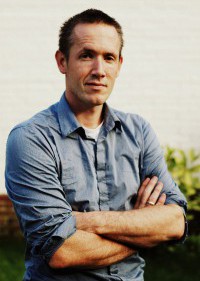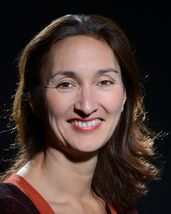 The Dutch Research School of Philosophy (OZSW) and Erasmus University Rotterdam (EUR) invite PhD students in philosophy to register for the summer school “Ethics and the Empirical Sciences: Emotions and Moral Agency,” to take place August 25-28, 2015.
The Dutch Research School of Philosophy (OZSW) and Erasmus University Rotterdam (EUR) invite PhD students in philosophy to register for the summer school “Ethics and the Empirical Sciences: Emotions and Moral Agency,” to take place August 25-28, 2015.
Organizing university
Date(s)
Location
Rotterdam
Type of activity
Type of activity
The course load is the equivalent of 5 ECTS
Primary target group
If places available, also open to
Application/registration deadline
June 1, 2015
About the topic
The study of moral agency has taken a flight in recent years. Moral philosophers are not alone in concerning themselves with it increasingly – neuroscientists, psychologists and cognitive scientists do so as well. In this course, we take a closer look at the work of philosophers and scientists on emotions and moral agency. The course program features philosophers who study empirical research in the area of moral agency, as well as scientists who do research in the area of emotions and the relation between emotions and moral agency.
Aim / objective
To get to know PhD students working in the area of emotions and moral agency, explore some of the central themes that are being discussed under this heading, and reflect on the following questions:
- How do scientist investigate (moral) emotions, what are the philosophical presuppositions?
- What do empirical research findings suggest about the role of emotions for moral agency?
- How can one fruitfully relate empirical findings on emotions to philosophical discussions about moral agency?
- What are the pitfalls and advantages of interdisciplinary research in philosophy?
Program
Tuesday August 25
12:00-13:00 Arrival, lunch and welcome
13:00-15:30 Session 1:
Emotions and Moral Judgment
– Frank Hindriks (University of Groningen, Professor of Ethics, Social and Political Philosophy)
– Maureen Sie (Erasmus University Rotterdam, Professor of Meta Ethics and Moral Psychology; Leiden University, Professor of Philosophical Anthropology and the Founding Principles of Humanism)
– David Pizarro (Cornell University, Professor of Psychology)
16:00-18:00 Student presentations
18:30-21:00 Dinner
Wednesday August 26
09:30-12:00 Session 2:
Emotions as a Source of Morality
– Katrien Schaubroeck (University of Antwerp, Professor of Philosophy)
– Marinus van IJzendoorn (Leiden University, Professor of Child and Family Studies; Erasmus University Rotterdam, Professor of Human Development)
12:00-13:00 Lunch
13:00-15:00 Student presentations
15:30-18:00 Session 3:
Emotion Theories in Philosophy
– Heleen Pott (Maastricht University, Professor of Philosophy; Erasmus University, Socrates Professor of Arts and Culture)
– Esther Kroeker (University of Antwerp, Post-doc Philosophy)
18:30-21:00 Dinner
Thursday August 27
09:30-12:00 Session 4:
The Cognitive and Bodily Nature of Emotions
– Sabine Roeser (Delft University of Technology, Professor of Ethics)
– Giovanna Colombetti (Exeter University, Professor of Cognitive Science)
12:00-13:00 Lunch
13:00-13:40 Student presentations
14:00-16:00 Panel discussion on interdisciplinarity
17:00-18:15 Rotterdam boat-tour
18:30-21:00 Dinner
Friday August 28
09:30-12:00 Session 5:
Neuroscience of (Moral) Emotions
– Leon de Bruin (Radboud University Nijmegen, Professor of Language and Cognition)
– Steven Kushner (Erasmus University Rotterdam, Professor of Neurobiological Psychiatry)
12:00-13:00 Lunch
13:00-15:00 Student presentations
15:30-18:00 Drafting interdisciplinary research proposals in small groups
18:30-20:00 Farewell drinks, including something to eat
Lecturers
1. Emotions and moral judgment
Prof.dr. Frank Hindriks
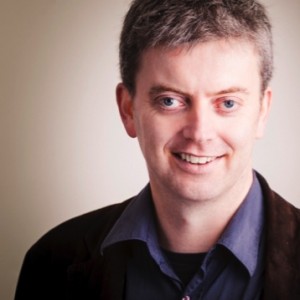
Research interests: Moral responsibility of individuals, social responsibility of corporations
Affiliations: Professor of Ethics, Social and Political Philosophy – University of Groningen; Fellow, TINT Centre of Excellence in the Philosophy of Social Sciences – University of Helsinki
Description: Frank Hindriks has been professor of ethics, social and political philosophy at the University of Groningen since 2014. He studied economics and philosophy at Erasmus University Rotterdam. After studying philosophy in St. Andrews, Frank obtained his doctorate at Erasmus University Rotterdam in 2005 with a dissertation entitled Rules and Institutions. Since then, Frank has been affiliated with the faculty of philosophy at the University of Groningen. He is also a Fellow of the TINT Centre of Excellence in the Philosophy of the Social Sciences at the University of Helsinki. Frank is editor of the Journal of Social Ontology (JSO) and vice-president of the International Social Ontology Society (ISOS). His research is primarily concerned with responsibility, both the moral responsibility of individuals and the social responsibility of organisations.
Dr. David Pizarro
Research interests: 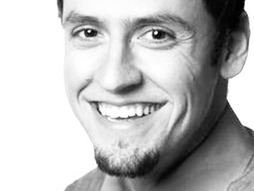 Moral judgment and emotion
Moral judgment and emotion
Affiliation: Professor of Psychology – Cornell University
Description: David Pizarro has been associate professor of psychology at Cornell University since 2012. He completed his undergraduate degree at Pacific Union College in 1997, and obtained his PhD at Yale University in 2002. His primary research interests are in moral judgment and emotion. He is particularly interested in moral intuitions (especially concerning moral responsibility and the permissibility or impermissibility of certain acts), and in biases that affect moral judgment. David also researches the influence of emotional states on thinking and deciding – particularly on how specific emotions (anger, disgust, fear, etc.) influence judgment and decisions.
2. Emotions as a source of morality
Dr. Katrien Schaubroeck
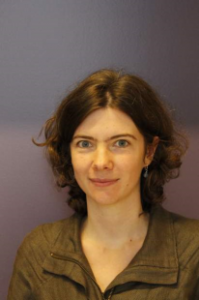
Research interests: Reasons of love, free will and responsibility, normativity of law, authority of morality, self-knowledge and self-confidence, the role of moral philosophy in society and education
Affiliation: Professor of Philosophy – University of Antwerp
Description: Katrien Schaubroeck has been tenure track lecturer of philosophy at the University of Antwerp since 2013. She studied philosophy at the University of Leuven, where she finished her PhD in 2008. In her PhD thesis she defends Harry Frankfurt’s notion of care as a source of practical reasons. After a post-doc in Leuven (2008-2011) she joined the interdisciplinary project What can the humanities contribute to our practical self-understanding? (Utrecht, 2011-2013). Her research focuses on issues at the intersection of meta-ethics and moral psychology. Katrien has written on a variety of topics within the domain of practical philosophy such as reasons of love, free will and responsibility, the normativity of law, the authority of morality, self-knowledge and self-confidence, and the role of (moral) philosophy in society and education.
Prof.dr. Rien van IJzendoorn
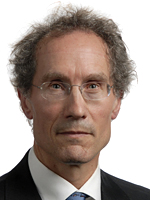 Research interests: Child development, parenting, moral development
Research interests: Child development, parenting, moral development
Affiliations: Professor of Child and Family Studies – Leiden University; Professor of Human Development – Erasmus University Rotterdam
Description: Marinus van IJzendoorn has been professor of child and family studies at Leiden University since 1981, and research professor of human development at Erasmus University Rotterdam since 2010. He graduated in 1976 with an MA degree in education from the Universiteit van Amsterdam. Two years later, Van IJzendoorn obtained his doctorate with great distinction from the Free University of Berlin. From 1978 to 1981 he was a researcher at Leiden University and in 1981 he was appointed professor there. Van IJzendoorn has been a visiting researcher in the United States and in Israel on several occasions. In 1990 he received a Pioneer grant and in 2004 a Spinoza Award from the Netherlands Organization for Scientific Research (NWO), and in 2008 a honorary doctorate from the University of Haifa, Israel. Van IJzendoorn’s main areas of interest are child socio-emotional development and parenting. He has specialised in attachment theory. In the era of the genome and the brain the influence of parenting on child development is not self-evident anymore. In his research programme the role of parents and other caregivers in children’s development of attachment, emotion regulation and prosocial behavior is examined, and the limits of their influence studied.
3. Emotion theories in philosophy
Prof. Dr. Heleen Pott: Emotion theories in the continental and analytic tradition
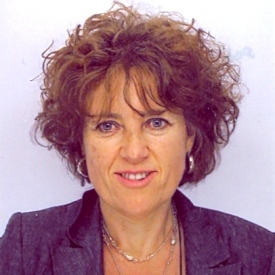 Research interests: Emotion, cognition and rationality in the history of science and philosophy; Trauma and cultural memory; Post-Kantian naturalism (Schopenhauer, Nietzsche); American pragmatism (James, Rorty); Cyber-anthropology; Humanistic foundations of modernity
Research interests: Emotion, cognition and rationality in the history of science and philosophy; Trauma and cultural memory; Post-Kantian naturalism (Schopenhauer, Nietzsche); American pragmatism (James, Rorty); Cyber-anthropology; Humanistic foundations of modernity
Affiliations: Professor of Philosophy – Maastricht University; Socrates Professor of Arts and Culture – Erasmus University Rotterdam
Description: Heleen Pott has been assistant professor of philosophy at Maastricht University since 1992, and Socrates Professor of Arts and Culture at Erasmus University Rotterdam since 1999. She studied philosophy, sociology and literature at the University of Amsterdam. After her doctoral studies, she worked as a NWO researcher at the Department of Philosophy at the University of Amsterdam (1987-1992). She wrote a dissertation on the ‘cognitive turn’ that took place during the 1970s and 1980s in interdisciplinary emotion research. Heleen published books and articles on a broad spectrum of topics, ranging from the philosophy of emotions through American pragmatism (William James, Richard Rorty) & postkantian naturalism (Schopenhauer, Nietzsche) to matters of literature, art, politics and cultural hermeneutics. She also contributed reviews and articles to newspapers and magazines.
Dr. Esther Kroeker: Hume and Reid on morality and passions
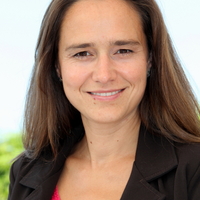 Research interests: History of modern philosophy, especially Thomas Reid and David Hume; Moral philosophy; Philosophy of religion; Meta-ethics, love and practical reasons.
Research interests: History of modern philosophy, especially Thomas Reid and David Hume; Moral philosophy; Philosophy of religion; Meta-ethics, love and practical reasons.
Affiliations: Post-doc Philosophy – University of Antwerp
Description: After finishing her doctoral studies at the University of Southern California, Esther Kroeker worked as a post-doc fellow at the Katholieke Universiteit Leuven. She is now a post-doc fellow at the University of Antwerp. She is currently working on several research topics. The first is Reid’s moral philosophy, moral perception, and agency. Some of her published articles are Explaining our choices: Reid on Motives, Character and Effort (2007), Reid on Natural Signs, Taste and Moral Perception (2009), and Acting from a Good Conscience: Reid, Love, and Moral Worth (2013). She is also currently working on Hume’s moral philosophy, and on his philosophy of religion. She is interested in 18th century Scottish moral philosophy, and in particular in the relation between emotions and morality. She is also working on issues dealing with love and practical reasons.
4. The cognitive and bodily nature of emotions
Prof.dr. Sabine Roeser
 Research interests: Theoretical and foundational topics concerning moral knowledge, intuitions, emotions, and evaluative aspects of risk
Research interests: Theoretical and foundational topics concerning moral knowledge, intuitions, emotions, and evaluative aspects of risk
Affiliations: Professor of Ethics – Delft University of Technology
Description: Sabine Roeser has been professor of ethics at TU Delft since 2012. She obtained her PhD in 2002 at the VU University Amsterdam, for her thesis Ethical intuitions and emotions: A philosophical study. She holds an MA in Philosophy and an MA in Political Science, both from the University of Amsterdam. Sabine did her BA in painting at the Academy of Fine Arts, Maastricht. Her research covers theoretical, foundational topics concerning the nature of moral knowledge, intuitions, emotions and evaluative aspects of risk, but also urgent and hotly debated public issues on which her theoretical research can shed new light, such as nuclear energy, climate change and public health issues. From July 2010-June 2015 she is head of a research group on Moral Emotions and Risk Politics for which she has received a VIDI-grant from the Netherlands Organisation for Scientific Research (NWO).
Dr. Giovanna Colombetti
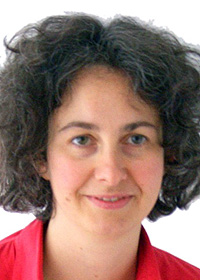 Research interests: Emotion and affectivity, consciousness, embodied and enactive approaches, the extended mind; theories and experimental work in affective science, phenomenology and affectivity of the body
Research interests: Emotion and affectivity, consciousness, embodied and enactive approaches, the extended mind; theories and experimental work in affective science, phenomenology and affectivity of the body
Affiliations: Professor of Cognitive Science – Exeter University
Description: Giovanna Colombetti has been associate professor of cognitive science at the University of Exeter since 2007. She studied philosophy and cognitive science in Florence, Birmingham (UK), and Sussex, and held postdocs at the universities of York (Canada), Trento, and Harvard. In 2010-2014 she has been Principal Investigator of a Starting Grant funded by the European Research Council (ERC), titled Emoting the Embodied Mind. As part of this project she has looked at the implications of the “4E” approach in the philosophy of mind and cognitive science (in particular the “enactive” approach) for a variety of affective phenomena. Her book The Feeling Body: Affective Science Meets the Enactive Mind (2014, MIT Press), synthesises many of the ideas developed during this project. She is currently working on the “extended-mind” thesis and its potential applications to the affective domain. She is particularly interested in the notion of the “scaffolded-mind”, and in how work in material culture and technology studies can be used to illustrate the scaffolded nature of a variety of affective phenomena.
5. Neuroscience of (moral) emotions
Dr. Leon de Bruin
Research interests: Embodiment and situatedness of social cognition, emotions, narrativity, self-knowledge
Affiliations: Professor of Language and Cognition – Radboud University Nijmegen
Description: Leon de Bruin has been assistant professor of language and cognition at the Radboud University Nijmegen since 2012, and post-doc in philosophy of mind at Bochum University since 2009. He has obtained his PhD in philosophy at the University of Leiden in 2010 with an interdisciplinary study on the embodiment and situatedness of social cognition. As postdoctoral fellow at the Ruhr-University Bochum, he has been involved in two major projects. The focus of the first project Other minds: neurophilosophy of intersubjectivity was on the development of false belief understanding. In the second project The Social mind: Self, other and interaction in cultural context he investigated how social cognition is shaped by cultural context. A large part of Leon’s current research as Assistant Professor of Language and Cognition at the Radboud University Nijmegen is still dedicated to questions about embodied and situated cognition. Over time, however, he has also taken an interest in related topics, such as emotions, narrativity and self-knowledge.
Prof. Dr. Steven Kushner
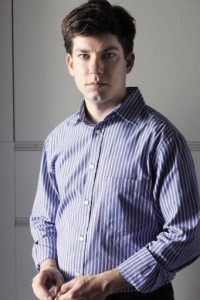 Research interests: Neurobiology of psychiatric disorders
Research interests: Neurobiology of psychiatric disorders
Affiliations: Professor of Neurobiological Psychiatry – Erasmus Medical Centre, Erasmus University Rotterdam
Description: Steven Kushner has been professor of neurobiological psychiatry at Erasmus Medical Centre since 2009. He completed his undergraduate degree summa cum laude at the University of Pennsylvania, writing an honors thesis with Prof. dr. Hank Kung in 1997. He studied medicine and neuroscience through the National Institutes of Health – Medical Scientist Training Program at the University of California, Los Angeles (2005). Steven’s PhD thesis was conducted in the laboratory of Prof. dr. Alcino J. Silva (2005). At the New York State Psychiatric Institute and Columbia University, he received clinical training as a psychiatrist, including board certification. His research centers on the neurobiology of psychiatric disorders.
Required preparations
The participants are expected to read all the assigned literature, to actively participate in all discussions, to hold a 10 minute presentation about their research, and to comment on the presentations by other participants.
Certificate / credit points
Participants can get a certificate of participation, which will indicate that the summer school has a study load equivalent of 5 ECTS.
Costs
- 325 Euro for non-OZSW members (PhD researchers)
The fee includes a 3-night stay in the Student Hotel (single-room); the use of a Student Hotel bike for 4 days; as well as breakfast (3x), lunch (4x), and dinner (3x) with all participants. - 285 Euro for OZSW members (PhD researchers and ReMa students)
Idem. - 235 Euro for PhD-researchers affiliated with the EUR graduate school (non-OZSW members)
The fee includes lunch (4x) and dinner (3x) with all participants. - 185 Euro for PhD-researchers affiliated with the EUR graduate school (OZSW members)
Idem.
Location / accommodation details
The summer school takes place in Rotterdam. Participants will stay in the Student Hotel which is close to the university campus at which the summer school is held (6 minutes by bike – there will be one bike per participant provided by the hotel, 9 minutes by public transportation, 18 minutes on foot).
Travel information
Click here for more information on how to get to Erasmus University Rotterdam (Campus Woudestein). Click here for more information on how to get to the Student Hotel (Willem Ruyslaan 225, 3063ER Rotterdam).
How to apply / register
The deadline for applications is June 1, 2015. Please do apply as early as possible. We operate with a rolling admissions procedure, which means that you will know four weeks after applying whether you have been admitted. The earlier you apply, the higher the probability that you will get in. The maximum number of participants is 40.
To apply for participation, please use the link to the registration form below. If you prefer not to pay before having received a confirmation of your acceptance, then send an email to Huub Brouwer (brouwer@fwb.eur.nl) with:
- A short description of your PhD project (500 words – describe your research interests if are a ReMa student),
- Your resume,
- A brief motivation for taking part in the summer school (300 words).
We will get back to you with an admission decision in four weeks time. If you are accepted, you can formally register using the form below.
The minimum number of participants is 20. We advice participants who have been accepted to only start booking train and plane tickets to get to the summer school when we have confirmed with them that the minimum number of participants has been reached.
Costs
- 325 Euro for non-OZSW members (PhD researchers)
The fee includes a 3-night stay in the Student Hotel (single-room); the use of a Student Hotel bike for 4 days; as well as breakfast (3x), lunch (4x), and dinner (3x) with all participants. - 285 Euro for OZSW members (PhD researchers and ReMa students)
Idem. - 235 Euro for PhD-researchers affiliated with the EUR graduate school (non-OZSW members)
The fee includes lunch (4x) and dinner (3x) with all participants. - 185 Euro for PhD-researchers affiliated with the EUR graduate school (OZSW members)
Idem.
Registration/application form
Organizers
Prof.dr. Maureen Sie
Research interests
Agency, free will, responsibility, reasons, judgments, choices, unreflective action
Affiliations
Professor Philosophical Anthropology and the Founding Principles of Humanism – Leiden University
Professor Meta Ethics and Moral Psychology – Erasmus University Rotterdam
Description
Maureen Sie has been Socrates professor of philosophical anthropology and the founding principles of humanism (on behalf of the Socrates Foundation) at Leiden University since 2012. She has been associate professor of meta-ethics and moral psychology at Erasmus University Rotterdam since 2000. From 2009 till 2013 she led a small research-group funded by the Dutch Organisation of Scientific Research (NWO) that explores the implications of the developments in behavioural science, cognitive science, and neuroscience for our concept of moral agency, reasons, free will, and personal responsibility.
Contact info
For further information related to the contents of this course, please contact Huub Brouwer (brouwer@fwb.eur.nl). For practical inquiries, please contact secretariaat@ozsw.nl.
